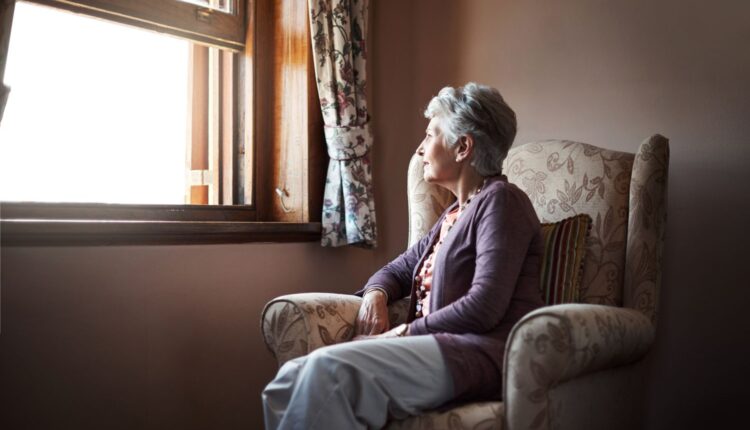
If you're single and ready to retire, the next stage of your life could look different from your married peers' lives. You may have a smaller nest egg, but you also might have more freedom to do what you want.
Here are some of the benefits and drawbacks of navigating your retirement years solo.
Key Takeaways
- Single retirees get to call their own shots. But they also have to try to get by on one Social Security benefit. Because of this, solo retirees may need greater retirement savings.
- Singles nearing retirement should try to boost their retirement savings as much as possible.
- Solo retirees also need to prepare for their long-term care needs and their estate planning.

Benefits of Retiring Solo
When you're retiring on your own, there's only one person making decisions regarding what you do with your time and money: you. So if you've always wanted to go on a tour of Bangkok or volunteer at your local animal shelter, the world is your oyster.
“You only have to plan for one. You have the flexibility to make your decisions quickly and without considering others’ interests,” says Noah Damsky, principal at Marina Wealth Advisors. “Maybe you want to move to a lower cost-of-living area, downsize your home, or move to a retirement facility—and you can.”
Drawbacks of Retiring Solo
One of the major downsides of retiring alone is that you’ll receive lower Social Security benefits than married couples who may enjoy two sets of Social Security benefits when they retire.
“Many single retirees cannot afford to retire alone and live only off one Social Security benefit. The average monthly Social Security benefit in 2025 is $1,980 per month (as of February 2025 data) or $23,760 per year,” says Chris Diodato, a certified financial planner and founder of WELLth Financial Planning. “That’s not enough for most people to live on, especially if they have car, rent, or mortgage payments.”
For many single retirees, one Social Security check often isn’t enough to cover all their living expenses. Therefore, solo retirees may need to save up more for retirement.
“For this reason, I usually see single retirees needing to have more saved than married couples. I recommend hiring a financial planner to create a cash flow projection before handing in your resignation notice to your employer,” Diodato says. “Even if it’s just a one-time plan, running the calculations to determine whether retiring is feasible is an excellent exercise for long-term financial stability and peace of mind.”
Create a Plan for Long-Term Care
When you are single, you’ll need to establish how you will handle your needs regarding long-term care.
“For singles, it’s smart to plan for an eventuality when you need help,” says Justin Pritchard, a certified financial planner at Approach Financial Planning. “That doesn’t necessarily mean moving into assisted living. It might mean hiring somebody to come in a few times per week to help with cooking and cleaning. Either way, planning for those costs is important.”
Put money for long-term care needs into your emergency fund, especially if there is no one in your life willing to help when you begin to need a hand at home.
“Without a support network, singles may need to pay for personal care or assisted living sooner, so building a robust emergency fund is essential,” says Melissa Caro, a certified financial planner and founder of My Retirement Network.
Get Estate Planning in Place
Estate planning is important, and only you can make the needed decisions. So take the time to prepare a will.
“Review your estate plan regularly, and pay close attention to the documents that matter while you’re still alive. Most people think about estate planning as death planning, but you should also plan for illness, cognitive decline, and other issues,” Pritchard says.
Choose a power of attorney. “See if it makes sense to appoint a power of attorney, who can complete financial tasks and other tasks for you. That may be helpful if you develop dementia or you’re incapacitated temporarily,” Pritchard says.
You may wish to establish healthcare directives. “Those instructions would allow you to appoint somebody who can instruct doctors on what type of care to pursue or abandon, depending on your preferences,” Pritchard says.
Maintain a Healthy Well-Being
It's important to take good care of your emotional health as well as your finances in retirement. Try to spend time with loved ones to stave off loneliness.
“Being on your own can have many benefits, but it can be isolating. Consider your social life and how you’ll continue to interact with others in retirement, as it can improve your happiness and overall mental health, and give you a sense of purpose,” Damsky says. “There’s more to a successful retirement than just having enough money in your bank account. That’s only the start.”
The Bottom Line
Retiring solo can feel freeing. You’re single, and you get to make all the financial moves on your own, such as downsizing or moving to a new place. But there are also downsides, such as trying to get by on a single Social Security benefit. This can be tough, and singles in retirement need to make sure they have greater retirement savings to fall back on.
If you are single and planning to retire, make boosting your retirement savings a top priority. Singles in retirement need to have a plan in place for long-term care. So, add money into an emergency fund for a time when you will need additional help. Estate planning is also a must for solo retirees. So, don’t delay in drafting a will and giving a trusted friend or relative power of attorney.



